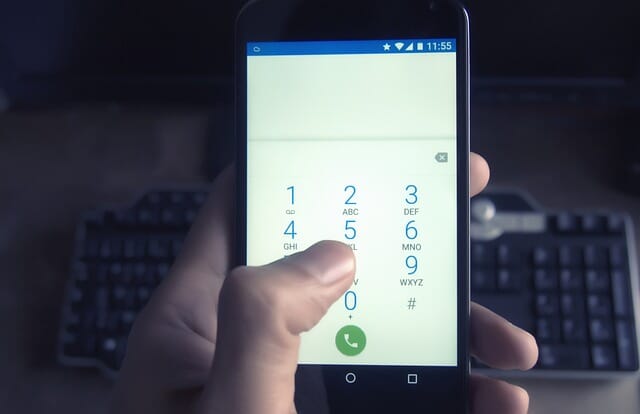
Reverse Phone Search Essentials: What You Need to Know
In the age of smartphones and constant connectivity, knowing who is on the other end of a phone call has never been more essential. Whether you're receiving an unknown number or trying to track down an old friend, understanding the ins and outs of reverse phone search can be a game changer. This guide will explore Reverse Phone Search Essentials: What You Need to Know in English, helping you navigate this powerful tool with confidence.
What is Reverse Phone Search?
Reverse phone search is a method that allows individuals to identify the owner of a phone number. Unlike traditional searches where you input a name to find associated contact details, reverse phone lookup flips the script. By entering a phone number into a designated tool, users can access information such as the owner's name, address, and even social media profiles linked to that number.
This service is particularly useful for identifying spam callers or reconnecting with lost acquaintances. With just a few clicks, you can unveil the mystery behind an unknown number.
How Does Reverse Phone Lookup Work?
When you engage in a reverse phone lookup, the process involves scanning multiple databases that compile public records and user-generated information. These databases gather data from various sources, including:
- Public Records: Information from government agencies regarding registered numbers.
- Social Media Profiles: Linked accounts that may provide additional context about the owner.
- User Submissions: Many platforms allow users to report or submit details about certain numbers.
Once you input the phone number into a reverse phone search tool, it cross-references these databases to return relevant information. Most services will give you basic information for free but may charge for comprehensive reports.
The Benefits of Using Reverse Phone Search
Understanding Reverse Phone Search Owner details Essentials: What You Need to Know in English reveals numerous benefits associated with using this service:
Common Uses for Reverse Phone Searches
There are several scenarios where utilizing reverse phone lookup proves beneficial:
- Lost Contacts: Perhaps you've misplaced your friend’s number but remember their old cell phone digits; this tool helps bridge that gap.
- Dating Safety: When meeting someone new online, verifying their identity through their provided phone number ensures peace of mind before meeting in-person.
- Business Verification: If you're expecting calls regarding job applications or business inquiries, confirming caller legitimacy can save time and headaches.
Choosing the Right Reverse Phone Lookup Service
With so many options available for reverse phone lookups, how do you choose the right one? Here are some factors to consider:
- Data Accuracy: Look for services known for reliable information gathered from verified sources.
- User Reviews: Trustworthy platforms often have positive feedback from users who successfully found what they needed.
- Privacy Policy: Ensure that any service respects user privacy and doesn't misuse your data.
- Cost Structure: While many services offer free basic searches, consider whether a premium service may provide value based on your needs.
Tips for Maximizing Your Reverse Phone Search Experience
Here are some tips to enhance your experience when using reverse phone search tools:
FAQs About Reverse Phone Searches
1. Is reverse phone lookup legal? Yes! In most regions, conducting a reverse phone search is completely legal as long as you're not using it for malicious purposes like stalking or harassment.
2. Can I find out someone's location through reverse phone search? While some services provide approximate locations based on area codes and public records, detailed geographic tracking typically requires specialized legal permissions and cannot be obtained through standard lookup tools.
3. Are there free options available for reverse phone searches? Absolutely! Many platforms offer free basic searches that give limited information about the owner of a number; however, comprehensive reports usually require payment.
In summary, mastering Reverse Phone Search Essentials: What You Need to Know in English empowers individuals with knowledge crucial in today's fast-paced world where communication lines are constantly blurring between personal and professional boundaries. With an array of tools at your disposal and helpful strategies outlined above, navigating unknown calls will become an adventurous journey rather than a daunting task! So go ahead—unleash the power of reverse phone searches today!